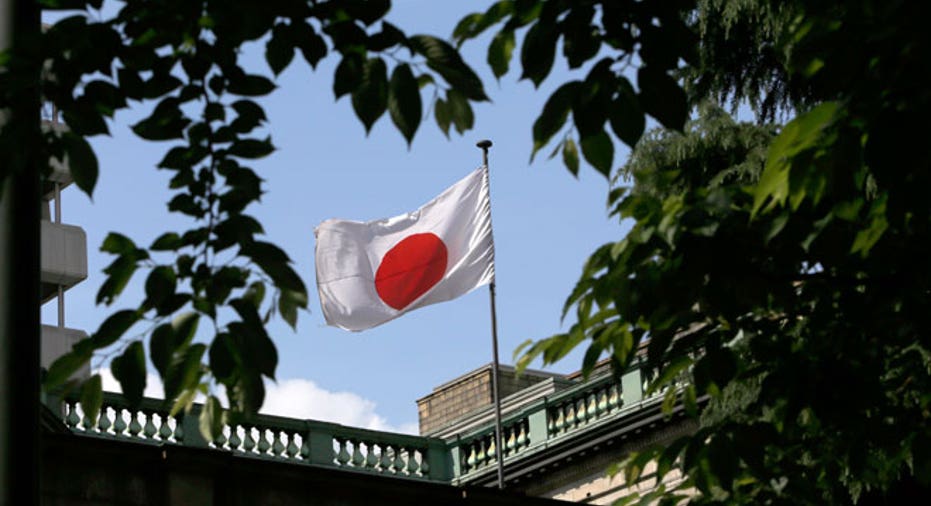Yen Tumbles to Four-Year Low, Raising Specter of Currency War

The yen weakened past 100 per dollar, giving Japanese Prime Minister Shinzo Abe a symbolic victory for his easy money policies, with markets bracing for further declines in the currency that could raise tensions with trading partners.
The yen broke through resistance to fall as low as 101.43 per dollar, down nearly three percent from Thursday's high around 98.65, and the weakest level in over four-and-a-half years.
The yen has declined more than 20 percent against the dollar in the past six months and its slide was the first tangible effect of Abe's push to end two decades of stagnation with a potent mix of aggressive monetary easing and fiscal expansion.
"Those who had lightened their yen-selling positions are now building up their positions again after the key level was broken," said Osamu Takashima, chief currency analyst at Citibank, adding that the market could target 104-105 yen in coming months.
Abe's bold leadership has seen some early payoff, as the current account surplus hit its highest level in a year in March due to a narrowing trade gap and the boost given to exporters' overseas income when transferred into yen.
Japanese workers also appear to be cheered for now, with service sector workers' sentiment outlook index hitting a record high in April, while confidence among manufacturers rose for a fifth straight month.
Still, the yen's sharp descent has put a spotlight on Japan's policies and whether it was deliberately devaluing its currency to give exporters an edge in the global markets.
Economy minister Akira Amari on Friday repeated Tokyo's mantra that it had no intention to manipulate currency levels.
A senior Japanese International Monetary Fund official, Naoyuki Shinohara, also said the current level of the yen is appropriate given the package of policies Abe is trying to pursue.
Despite some reservations, the Group of 20 leading economies and the Group of Seven industrial nations have accepted Tokyo's line that the yen's slide was a side effect rather than a policy aim.
Yet some market players said a feared currency war among Japan's trade partners might have just become a reality after Australia and South Korea unexpectedly cut rates this week, citing their strong currencies as one of the reasons to act.
A South Korean finance ministry official said on Friday Seoul was worried about the pace of the yen's decline and was studying whether new measures were needed to lessen the impact.
"I won't call it an all out currency war, but it's certainly in the fringes of one, sort of like a pre-war tactic by Australia and Korea," said David Madden, London-based analyst at IG.
New Zealand's central bank also confirmed this week it intervened to weaken its currency, for only the second time it has conmfirmed intervention since the "kiwi" was floated almost three decades ago.
Regardless of the G7 policymakers meeting on Friday, traders saw little reason to expect the yen's decline to stop any time soon.
BOLD POLICIES
Despite murmurs of discontent among Japan's trade partners, Abe is likely to see the latest slide in the yen as yet another milestone in his campaign to revive the world's third largest economy.
So far his efforts have culminated in a radical monetary expansion ushered in on April 4 by his newly appointed Bank of Japan Governor Haruhiko Kuroda.
The weaker yen has already shored up profits of export giants such as Toyota Motor while pressuring their rivals.
The Korean economy, the fourth biggest in Asia, is particularly susceptible to a weaker yen because the two countries are fierce export competitors. The won has risen more than 10 percent against the yen this year, while Seoul shares are down 2.1 percent.
MORE YEN WEAKNESS
Analysts see more downside for the yen.
"Now that dollar/yen has finally gotten over the psychological hurdle of 100, there will likely be more (dollar) buying by those who were sceptical of Abenomics to begin with," Neal Gilbert, market strategist at GFT Forex in Grand Rapids, Michigan.
The yen's break below the key level and a still-weak outlook was underscored on Friday with data showing Japanese investors finally reversed their relentless net selling of foreign bonds over the past 2-1/2 months.
Japanese investors bought a net total of 514 billion yen ($5.2 billion) foreign bonds in the two weeks to last Friday, a sign the massive monetary easing may be pushing them to seek higher returns abroad, from U.S. Treasuries to New Zealand bonds.
DARK SIDE
The yen's fall is not all good news for Japan as it will substantially raise the cost of raw materials and energy it largely imports.
"For manufacturers, overall we are thankful that the trend is the yen's depreciation, but we are seeing signs of raw material costs rising. Of course that does not mean we will decrease manufacturing in Japan, but we need to think how these costs can be absorbed," Yasuyuki Yoshinaga, CEO of Fuji Heavy Industries Ltd, said this week.
That is one reason why Japanese companies have been very conservative about lifting their earning forecasts for the current business year ending March 2014.
Still, the Nikkei share average scaled a 5-1/2-year high on Friday as the yen's decline is seen boosting Japanese exporters' bottom line.
Possibly a bigger headache for the BOJ could be a sharp rise in Japanese government bond yields. The 10-year government bond yield rose 0.105 percentage point, the biggest rise in five years, to 0.695 percent.
"The BOJ has said it was aiming to shift the yield curve downwards by bond buying. It shifted upwards instead. But it is only natural for yields to go higher if the central bank wants to lift inflation," said Seiya Nakajima, chief economist at Itochu Corp.



















